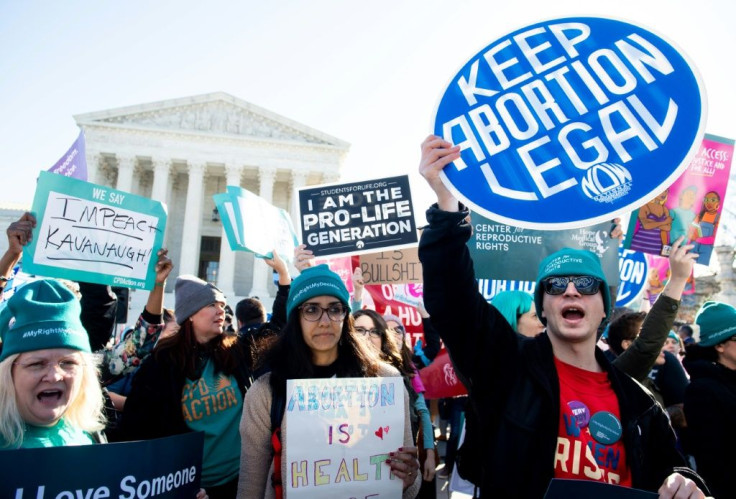Idaho Ruling: Biden Administration Scores Win As Judge Blocks Part Of Abortion Law
KEY POINTS
- Idaho will not be able to punish doctors performing life-saving abortions
- The restrictive abortion law will still go into effect Thursday
- The temporary injunction will be in place till state and federal governments argue their cases
A U.S. district judge in Idaho temporarily blocked part of the state's abortion law Wednesday. The state will no longer be able to prosecute doctors who perform abortions to safeguard the health of pregnant patients.
A near-total ban on abortions will still go into effect Thursday but the temporary injunction provided by Judge B. Lynn Winmill will allow doctors to perform life-saving procedures when women are endangered by pregnancy complications.
This will remain in effect while the state and federal government argue their cases in court, according to Financial Times.
The ruling comes days after the Biden administration filed a lawsuit earlier this month, arguing that the near-total ban would violate women's rights to emergency medical care under the federal Emergency Medical Treatment and Labor Act (EMTALA).
It is the current administration's first legal win in their bid to safeguard abortion rights following the overturn of Roe v. Wade.
But the latest ruling "is not about the bygone constitutional right to an abortion," Winmill ruled. "This Court is not grappling with that larger, more profound question."
The judge's decision was made to curb the infringement of the Emergency Medical Treatment and Labor Act (EMTALA) – the act which requires hospitals to provide stabilizing treatments for patients with emergency medical conditions.
"Rather, the Court is called upon to address a far more modest issue — whether Idaho's criminal abortion statute conflicts with a small but important corner of federal legislation. It does," he wrote.
The state argued that the law didn't violate EMTALA, an argument that Winmill found unconvincing "because it failed to properly account for the staggeringly broad scope of its law," which he said "criminalizes all abortions," reported CNBC.
Idaho was one of the many states to enact abortion trigger bans after the Roe v. Wade ruling, banning all abortions. This would have threatened the EMTALA, which has been in effect for 36 years, and the Biden administration's abortion mandate issued in July, which requires hospitals funded by Medicare and Medicaid to provide abortions as a stabilizing treatment even in states where the procedure is banned.
Attorney General Merrick Garland, in a statement, said, "Today's decision by the District Court for the District of Idaho ensures that women in the State of Idaho can obtain the emergency medical treatment to which they are entitled under federal law."
"This includes abortion when that is the necessary treatment. As the District Court ruled, a state law that attempts to prevent a hospital from fulfilling its obligations under EMTALA violates federal law and the Supremacy Clause of the U.S. Constitution. The Department of Justice will continue to use every tool at its disposal to defend the reproductive rights protected by federal law," the statement read.
The decision came a day after Judge James Wesley Hendrix's ruling that Texas hospitals will not be required to perform emergency abortions, saying the Biden administration didn't have the authority to overrule state abortion restrictions.
Garland's statement touched upon Texas's ruling.
"The Department disagrees with yesterday's decision by the District Court for the Northern District of Texas, which preliminarily enjoins the Centers for Medicare & Medicaid Services' July 11, 2022 guidance on EMTALA and Secretary Becerra's accompanying letter as applied to the plaintiffs in that litigation. We are considering appropriate next steps," the attorney noted.

© Copyright IBTimes 2025. All rights reserved.




















